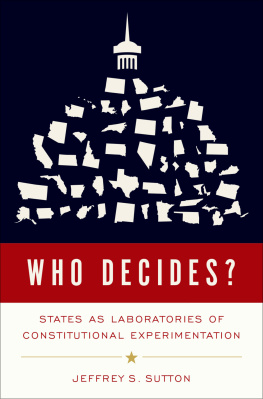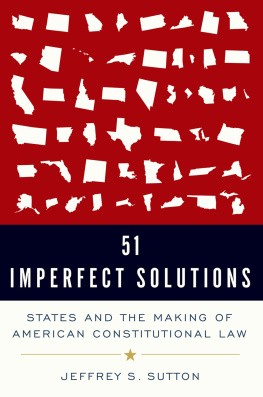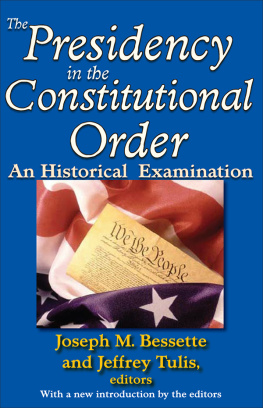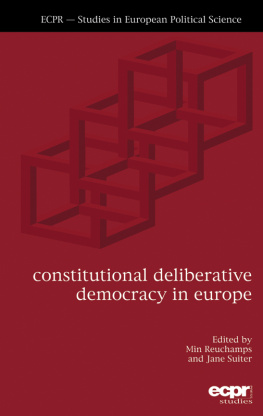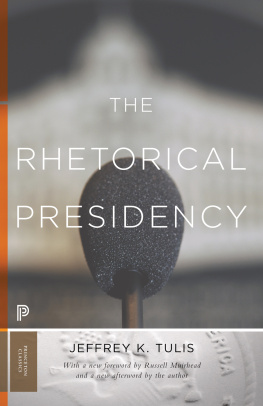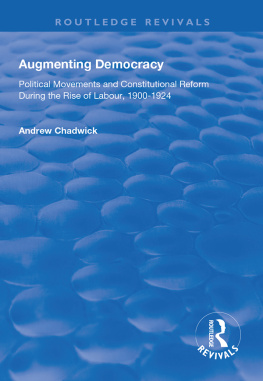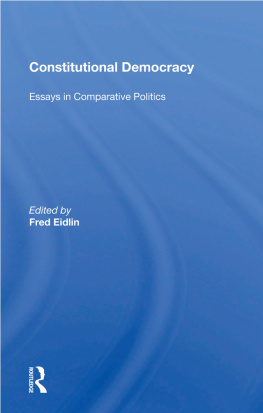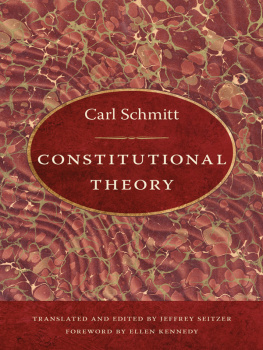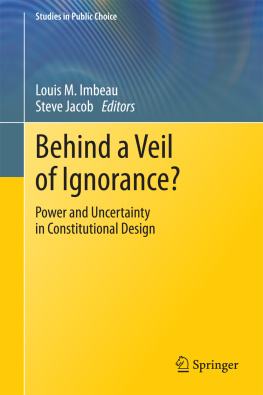Tulis Jeffrey - The limits of constitutional democracy
Here you can read online Tulis Jeffrey - The limits of constitutional democracy full text of the book (entire story) in english for free. Download pdf and epub, get meaning, cover and reviews about this ebook. City: États-Unis, Princeton, N.J., year: 2010, publisher: Princeton University Press, genre: Politics. Description of the work, (preface) as well as reviews are available. Best literature library LitArk.com created for fans of good reading and offers a wide selection of genres:
Romance novel
Science fiction
Adventure
Detective
Science
History
Home and family
Prose
Art
Politics
Computer
Non-fiction
Religion
Business
Children
Humor
Choose a favorite category and find really read worthwhile books. Enjoy immersion in the world of imagination, feel the emotions of the characters or learn something new for yourself, make an fascinating discovery.

- Book:The limits of constitutional democracy
- Author:
- Publisher:Princeton University Press
- Genre:
- Year:2010
- City:États-Unis, Princeton, N.J.
- Rating:4 / 5
- Favourites:Add to favourites
- Your mark:
- 80
- 1
- 2
- 3
- 4
- 5
The limits of constitutional democracy: summary, description and annotation
We offer to read an annotation, description, summary or preface (depends on what the author of the book "The limits of constitutional democracy" wrote himself). If you haven't found the necessary information about the book — write in the comments, we will try to find it.
The limits of constitutional democracy — read online for free the complete book (whole text) full work
Below is the text of the book, divided by pages. System saving the place of the last page read, allows you to conveniently read the book "The limits of constitutional democracy" online for free, without having to search again every time where you left off. Put a bookmark, and you can go to the page where you finished reading at any time.
Font size:
Interval:
Bookmark:
THE LIMITS OF CONSTITUTIONAL DEMOCRACY
THE UNIVERSITY CENTER
FOR HUMAN VALUES SERIES
CHARLES R. BEITZ,
EDITOR
Multiculturalism and The Politics of Recognition
by Charles Taylor
A Matter of Interpretation: Federal Courts
and the Law
by Antonin Scalia
Freedom of Association edited by Amy Gutmann
Work and Welfare by Robert M. Solow
The Lives of Animals by J. M. Coetzee
Truth v. Justice: The Morality of Truth Commissions
edited by Robert I. Rotberg and Dennis Thompson
Goodness and Advice by Judith Jarvis Thomson
Human Rights as Politics and Idolatry
by Michael Ignatieff
Democracy, Culture, and the Voice of Poetry
by Robert Pinsky
Primates and Philosophers: How Morality Evolved
by Frans de Waal
Striking First: Preemption and Prevention
in International Conflict by Michael W. Doyle
Meaning in Life and Why It Matters by Susan Wolf
The Limits of Constitutional Democracy
edited by Jeffrey K. Tulis and Stephen Macedo
CONSTITUTIONAL
DEMOCRACY
Jeffrey K. Tulis and Stephen Macedo, editors

Copyright 2010 by Princeton University Press
Published by Princeton University Press, 41 William Street,
Princeton, New Jersey 08540
In the United Kingdom: Princeton University Press,
6 Oxford Street, Woodstock, Oxfordshire OX20 1TW
All Rights Reserved
Library of Congress Cataloging-in-Publication Data
The limits of constitutional democracy / edited by Jeffrey K. Tulis and Stephen Macedo.
p. cm. (University Center for Human Values series)
Includes index.
ISBN 978-0-691-14734-5 (hardcover : alk. paper) ISBN 978-0-691-14736-9 (pbk. : alk. paper)
1. DemocracyUnited States. 2. Constitutional historyUnited States.
3. Constitutional lawUnited States. I. Macedo, Stephen, 1957 II. Tulis, Jeffrey.
JK1726.L56 2010
321.8dc22
2010007375
British Library Cataloging-in-Publication Data is available
This book has been composed in Sabon
Printed on acid-free paper.
press.princeton.edu
Printed in the United States of America
10 9 8 7 6 5 4 3 2 1
JEFFREY K. TULIS AND STEPHEN MACEDO
SOTIRIOS A. BARBER
JAMES E. FLEMING
GARY JEFFREY JACOBSOHN
The Architectonics of a Well-Founded Constitutional Order
WILLIAM F. HARRIS II
Executive Discretion and Congressional Legislation in the Civil War and World War I
BENJAMIN A. KLEINERMAN
JEFFREY K. TULIS
Embedding Emergency Government in Everyday Constitutional Life
KIM LANE SCHEPPELE
ADRIAN VERMEULE
MARIAH ZEISBERG
Rethinking Jacksons Concurrence in Youngstown v. Sawyer
JOSEPH M. BESSETTE
MARK E. BRANDON
JAN-WERNER MLLER
RAN HIRSCHL
ROGERS M. SMITH
DANIEL DEUDNEY
CHRISTOPHER L. EISGRUBER
JEFFREY K. TULIS AND STEPHEN MACEDO
OUR LARGE THEME IS FAILURE and success in constitution making, or the limits of constitutional democracy. The convergence of recent scholarly work in political science and law and political events throughout the world make this a timely project inside and outside of the academy. The number of new constitutional texts written in support of regime formation in the past thirty years is astonishing. The profusion of ideas and scholarship on constitution making also marks a milestone for social science, which had long neglected the study of laws and constitutions, and for legal studies, which recently added the study of constitutional design to its usual emphasis on constitutional interpretation and analyses of court doctrine.
This worldwide effort in political and academic arenas is, however, marked by a kind of ambivalence. On the one hand, there is considerable optimism that constitutional democracy represents a high point, if not a culmination, in the history of political life. The attractiveness of this political idea is so powerful that even countries such as Russia, whose long anticonstitutional pedigree continues to shape politics as it is experienced there, claim to be constitutional democracies. On the other hand, for all the attractiveness of the idea of constitutional democracy, establishing it in practice has proved difficult in many new regimes throughout the world, as the Russian case and the conflicts in Iraq and Afghanistan vividly illustrate. Constitutional democracy is at once an attractive idea and a daunting enterprise. There are limits to the possible establishment, to say nothing of the flourishing, of the idea of constitutional democracy.
This book takes up the concern about the limits of constitutional democracy by returning to its most basic questions: What is constitutional democracy? What does it mean for constitutional democracy to succeed or fail? To address issues so fundamental that they are often overlooked or taken for granted means that one can no longer assume the attractiveness of the idea of constitutionalism but must interrogate the meaning, limits, and appeal of the constitutional idea. Our usual way of talking about the limits of constitutional democracy is to discuss the variety of indigenous circumstancesethnic and tribal traditions, lack of commitment to a rule of law, religious strifethat hinder its development. For many who adopt this usual approach, constitutional democracy itself is unlimited in its appeal, but circumstances limit its establishment. In this book, we reverse the lens on these phenomena. Here we ask: What are the limits of constitutional democracy under minimally plausible circumstances for its establishment? What can we expect of constitutional democracy even under hospitable social circumstances? In a political order in which the citizenry is committed to constitutional democracy and its basic tenets, such as the rule of law properly conceived, what can constitutional democracy accomplish and what will it fail to accomplish? This is another way of asking what constitutional democracy is, what its theoretical boundaries are. Can this sort of regime adequately contend with emergencies? Can constitutional democracies conduct war effectively and still remain constitutional democracies? Can constitutional democracy cope with global interdependence?
This distinction between the conventional understanding of limits and the approach of this book is intentionally overdrawn. Studies of political and social circumstances inevitably run up against the question of the limits of constitutional democracy per se. And our analyses of constitutional democracy will inevitably raise questions about indigenous political and social circumstances or prerequisites. But in each case there is a distinct emphasis that colors the presentation. Our emphasis here is on the meaning and the limits of constitutional democracy itself.
This project was inspired by a remarkable recent study that offers an account of the creation, maintenance, and change of constitutional democracy. In Constitutional Democracy: Creating and Maintaining a Just Political Order, the late Walter F. Murphy developed a constitutional theory that was unusually comprehensive. Murphy showed how the problems of constitutional creation and maintenance could be illuminated by conjoining literatures and fields that rarely spoke to one another. He brought together the concerns of legal academics who study constitutions with political scientists who study law in one overarching account. It may be surprising to the general reader that these intellectual communities often work separately even though they study the same subject. To be sure, legal academics and political scientists usually raise different questions and often deploy different methods. Yet there is much to learn from each community, and Murphys book transcended that divide. Within political science, Murphy synthesized literatures from warring conceptual and methodological approaches and from diverse subfieldsranging from comparative politics to American political development, from theories of rational choice to studies of political behavior, and from political theory to political history. The result is a modern version of an Aristotelian idea that constitutional theory could be architectonic.
Next pageFont size:
Interval:
Bookmark:
Similar books «The limits of constitutional democracy»
Look at similar books to The limits of constitutional democracy. We have selected literature similar in name and meaning in the hope of providing readers with more options to find new, interesting, not yet read works.
Discussion, reviews of the book The limits of constitutional democracy and just readers' own opinions. Leave your comments, write what you think about the work, its meaning or the main characters. Specify what exactly you liked and what you didn't like, and why you think so.

